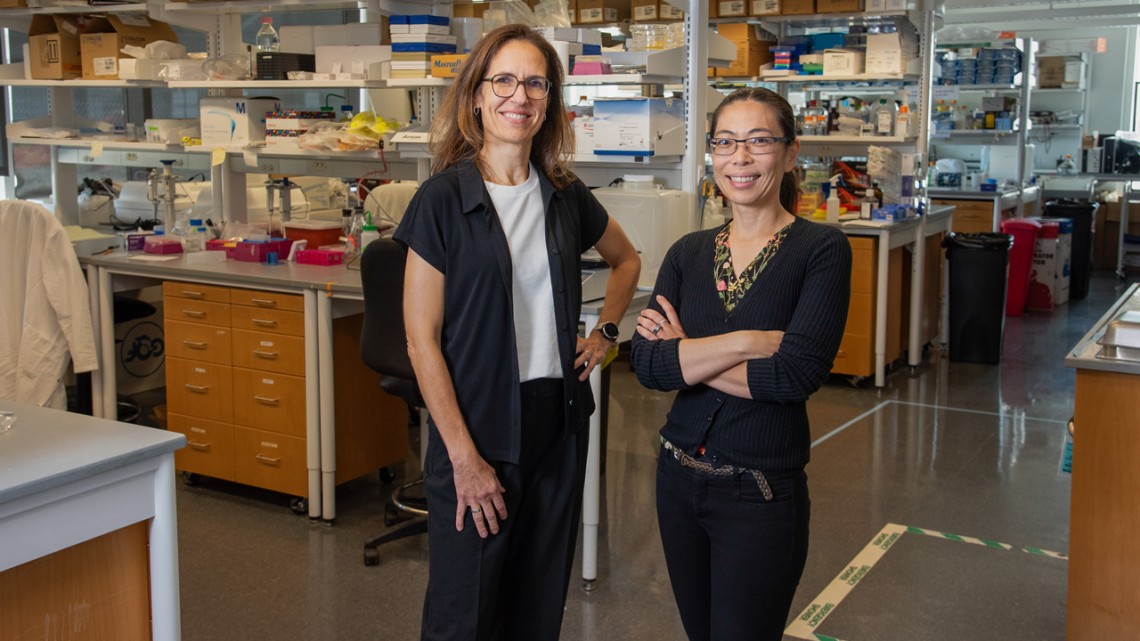
The Menopause Health Engineering Initiative, founded by Prof. Nozomi Nishimura, aims to understand the science of menopause and improve health for half the population! Check out the Cornell Chronical article here.
Postdoc Becka Irwin has just accepted a position as a Tenure-Track Assistant Professor in the Biomedical Engineering department at the University of Rochester, to begin July 2025. Congratulations Becka!
Check out Becka's UR faculty page here.
Through a new collaboration on VR technology with the Sarvestani lab, the Schaffer-Nishimura lab marks its 7th Neurotech project funded through the Mong Fellows program in the past 9 years, beginning with the inaugural fellowship in 2016. Congratulations to all!

The project, led by SN-lab alumnus Seth Lieberman, developed a surgical technique to attenuate the spread of epileptic seizures in the brain by making precise incisions with femtosecond laser pulses around epileptic foci. Check out the Cornell Chronical article here!
Postdoc Lianne Trigiani has just received a postdoctoral fellowship from the Alzheimer's Association! This is the 2nd major fellowship Lianne has been awarded for research in the Schaffer-Nishimura lab (after a CIHR fellowship in 2020), a testament to her consistently high quality work!
Chris will spend his sabbatical next year in Washington, DC working as a Congressional Science Policy Fellow. This program is organized by the American Association for the Advancement of Science and the fellowship Chris received is jointly funded by the Optical Society of America and SPIE. Chris will be placed in the office of a representative or senator and will provide advice, from the perspective of a professional scientist, on science policy issues, education, health care, climate change, energy, and other pressing policy problems. An article in the Cornell Chronicle and a press release from the OSA each discuss Schaffer’s upcoming fellowship.
Liz Wayne is one of eight recipients of the 2013 Cook Award. The Cook Award is named in honor of the late Constance E. Cook, Cornell's first woman vice president, and the late Professor Emeritus Alice E. Cook, founding member of the Advisory Committee on the Status of Women. The Award honors individuals who deserve recognition for their commitment to women's issues and their contributions for changing the climate for women at Cornell. Liz was nominated by Dr. Sheri Notaro in acknowledgement of her achievements and contribution to the Cornell community. In particular, for organizing the Northeast Conference for Undergraduate Women in Physics. The awards ceremony will be held February 28th, 2013.
In two new papers that appeared this week, the Schaffer-Nishimura lab continues to increase our understanding of how bleeds from small blood vessels impact the health and function of nearby brain cells. A short review paper that appeared in the journal Stroke outlines differences in impact of a clot or hemorrhage to a small blood vessel in the brain, emphasizing the greater destruction caused by occlusions and the potential role of inflammation in driving cognitive dysfunction after microhemorrhage. An original article that appeared in PLoS ONE shows that microhemorrhages cause a temporary loss of the ability of nearby neurons to respond to a peripheral stimulus, but that these cells recover normal function in the hours after the injury. Together these articles advance our understanding of how small brain bleeds may contribute to cognitive decline.